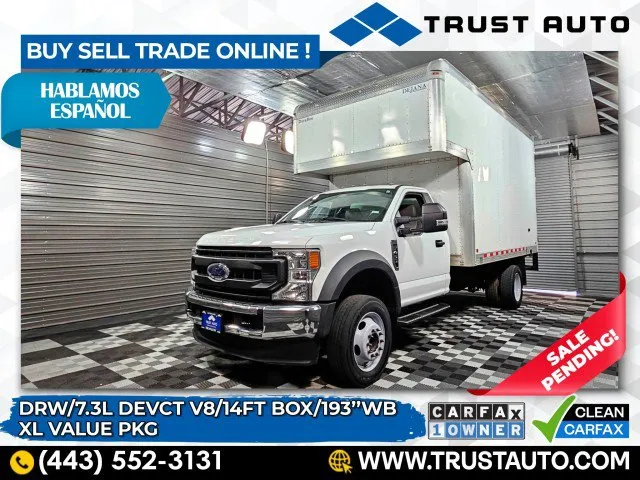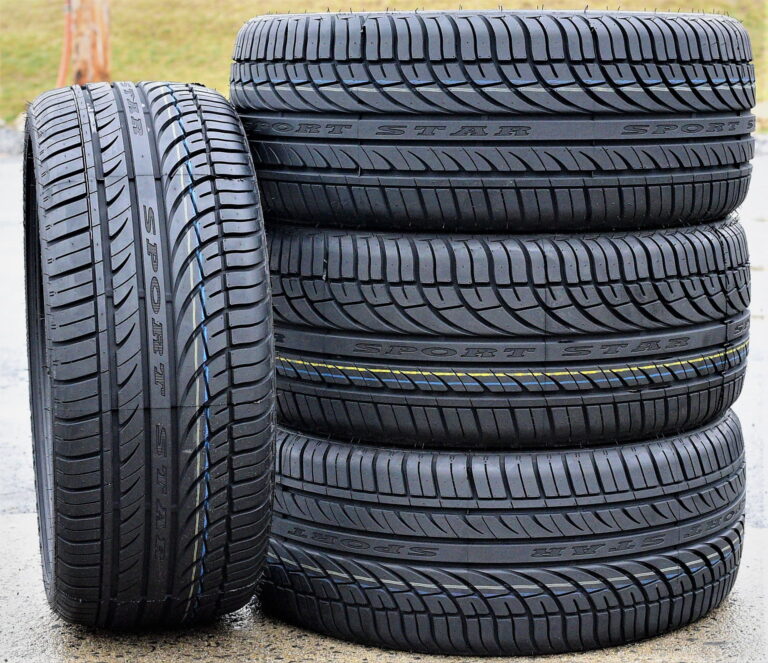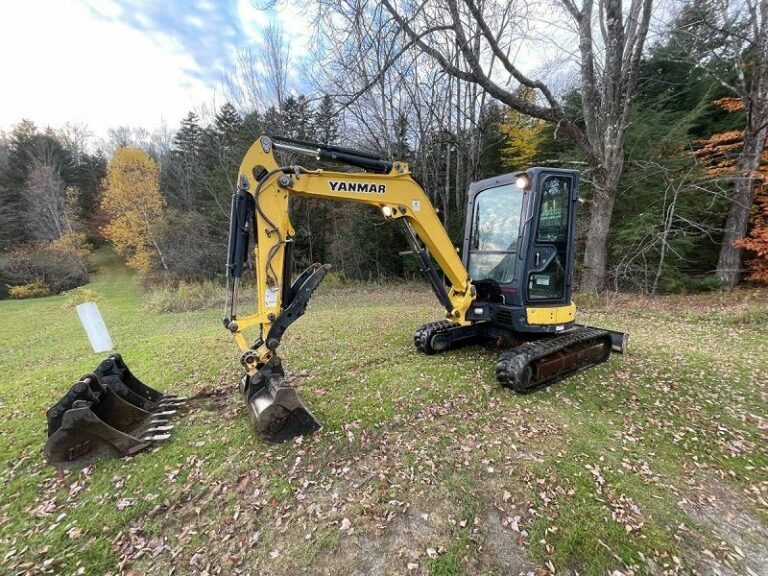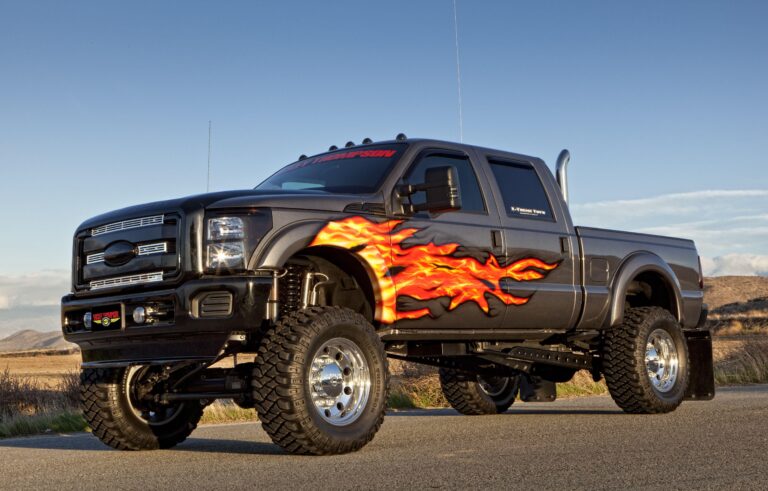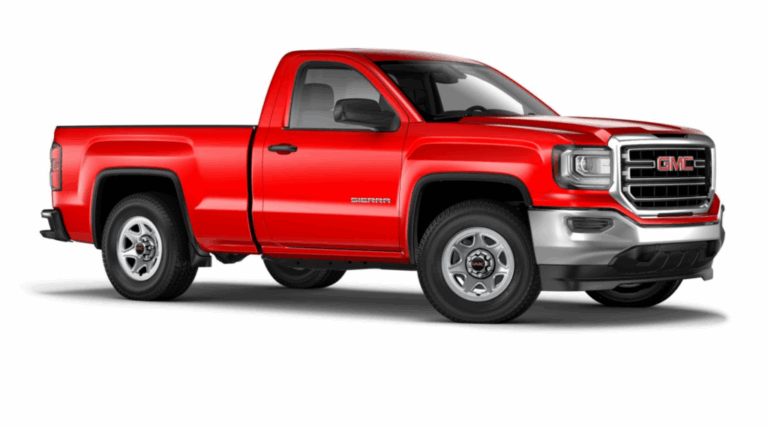Commercial Dually Trucks For Sale: Your Ultimate Guide to Heavy-Duty Hauling
Commercial Dually Trucks For Sale: Your Ultimate Guide to Heavy-Duty Hauling cars.truckstrend.com
In the demanding world of commercial operations, where heavy loads and long hauls are the norm, a robust and reliable vehicle is not just an asset—it’s a necessity. Enter the commercial dually truck, a specialized class of pickup or chassis cab distinguished by its dual rear wheels on each side, providing a total of four wheels on the rear axle. These formidable machines are the backbone of countless businesses, offering unparalleled stability, towing capacity, and payload capabilities that single rear wheel (SRW) trucks simply cannot match.
Whether you’re in hotshot trucking, construction, agriculture, oil and gas, or simply need to move substantial equipment, understanding the intricacies of commercial dually trucks for sale is crucial. This comprehensive guide will delve into what makes these vehicles indispensable, what to look for when buying, and how to make an informed decision that drives your business forward.
Commercial Dually Trucks For Sale: Your Ultimate Guide to Heavy-Duty Hauling
What Makes a Dually "Commercial"?
While any dually truck can technically be used for work, a "commercial" dually is specifically configured and often registered for business operations, frequently exceeding the capabilities and regulations of personal-use vehicles. Key aspects that define a commercial dually include:
- Gross Vehicle Weight Rating (GVWR): Commercial duallies typically have a GVWR that classifies them as heavy-duty, often above 10,000 lbs, requiring adherence to specific Department of Transportation (DOT) regulations depending on their use and combined weight.
- Gross Combined Weight Rating (GCWR): This critical figure dictates the maximum permissible weight of the truck and its attached trailer, fully loaded. Commercial operations frequently push these limits, making a high GCWR essential.
- Purpose-Built Features: Commercial duallies are engineered for continuous heavy work. This means they come with reinforced frames, heavy-duty suspensions (often with auxiliary springs or air suspension options), robust braking systems, and powertrain components designed for extreme stress.
- Specialized Applications: They are the preferred choice for towing large fifth-wheel or gooseneck trailers, carrying heavy service bodies, flatbeds, or utility beds, and transporting equipment that would overwhelm standard trucks.
- Compliance & Licensing: Depending on the GVWR and GCWR, operating a commercial dually (especially with a heavy trailer) may necessitate a Commercial Driver’s License (CDL), DOT numbers, and adherence to specific hours-of-service regulations.

Key Benefits of Owning a Commercial Dually
Investing in a commercial dually offers distinct advantages for businesses that rely on heavy hauling:
- Superior Towing Capacity: The primary benefit. The additional rear wheels distribute weight more evenly, reducing stress on individual tires and improving overall stability, allowing for significantly higher towing capacities than SRW trucks.
- Enhanced Stability and Safety: With a wider stance and more tire contact points on the road, duallies provide exceptional stability, minimizing trailer sway, especially in crosswinds or during emergency maneuvers. This translates directly to safer operation for both the driver and other road users.
- Increased Payload Capacity: Beyond towing, duallies can handle heavier loads in their beds or on their chassis. This is crucial for carrying large toolboxes, heavy equipment, or specialized service bodies.
- Durability and Longevity: Built with more robust components, commercial duallies are designed to withstand the rigors of constant heavy use, leading to a longer operational lifespan and potentially lower long-term maintenance costs for the work they perform.
- Versatility: Many commercial duallies are sold as chassis cabs, allowing businesses to customize them with various vocational bodies like flatbeds, dump beds, utility bodies, or even small wrecker setups, making them adaptable to diverse commercial needs.
- Compliance: For businesses operating at specific weight thresholds, a dually often becomes a requirement to stay within legal GVWR and GCWR limits, avoiding costly fines and ensuring road safety.
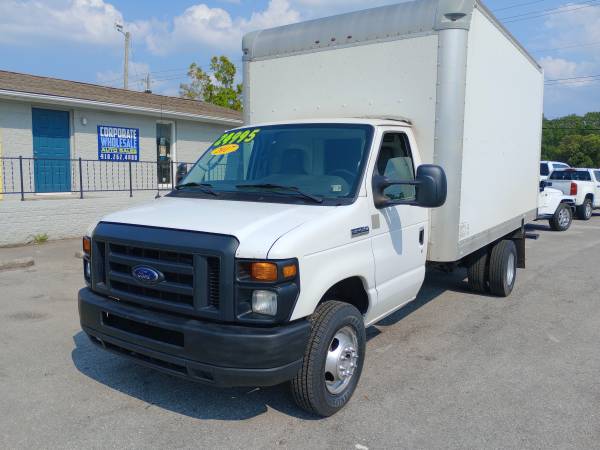

Types and Configurations of Commercial Dually Trucks
Commercial dually trucks come in various forms, tailored to different needs and preferences:
- By Manufacturer:
- Ford Super Duty (F-350, F-450, F-550): Known for their Power Stroke diesel engines and robust chassis, particularly the F-450 which often boasts class-leading towing figures for pickup-style trucks.
- Ram Heavy Duty (3500, 4500, 5500): Feature the Cummins turbo-diesel engine, renowned for its torque and longevity, and often offer competitive payload and towing capacities.
- Chevrolet/GMC Silverado/Sierra HD (3500HD): Equipped with the Duramax diesel engine, these trucks are praised for their comfortable ride and strong performance.
- By Engine Type:
- Diesel Engines: The dominant choice for commercial applications due to their immense torque, better fuel efficiency under load, and extended durability. They are essential for heavy towing and demanding work cycles.
- Gasoline Engines: Offer a lower upfront cost and simpler maintenance. While their torque output is less than diesel, modern large displacement gas engines are increasingly capable for certain commercial tasks, especially those with shorter hauls or less extreme loads.
- By Cab Configuration:
- Regular Cab: Most basic, often used for chassis cab applications where maximum wheelbase or minimal passenger space is needed.
- Extended/Quad Cab: Offers limited rear seating and interior storage, a compromise between space and overall length.
- Crew Cab: The most popular for commercial use, providing ample passenger space for work crews and additional secure interior storage.
- By Bed Length & Drivetrain:
- Long Bed (8 ft): Standard for commercial duallies, accommodating larger payloads and fifth-wheel hitches.
- 2WD vs. 4WD: 2WD offers better fuel economy and a tighter turning radius, suitable for paved roads. 4WD is crucial for off-road access, construction sites, or adverse weather conditions.
Important Considerations When Buying a Commercial Dually
Purchasing a commercial dually is a significant investment. Consider these factors carefully:
- Budget (New vs. Used): New duallies offer the latest technology, full warranties, and customization options but come with a higher price tag and rapid initial depreciation. Used duallies can be a cost-effective alternative, but require thorough inspection and understanding of their history.
- Intended Use/Application: Define your primary use. Are you hotshot trucking, hauling heavy equipment, or needing a service truck? This will dictate required towing/payload capacities, engine type, and specific features.
- Towing & Payload Requirements: Critically assess your maximum anticipated load. Always factor in the Gross Vehicle Weight Rating (GVWR) of the truck itself, and the Gross Combined Weight Rating (GCWR) for the truck and trailer combination. Never exceed these ratings.
- Engine & Transmission: Research the specific engine and transmission combinations available for your chosen model. Look for proven reliability and a track record of handling heavy loads. Diesel engines are generally preferred for commercial use due to their torque and longevity.
- Maintenance & Operating Costs: Duallies, especially diesels, can have higher maintenance costs (e.g., specialized filters, DEF fluid, more expensive parts) and tire replacement costs (six tires instead of four). Factor in fuel efficiency under load, which can vary significantly.
- State & Federal Regulations: Be aware of CDL requirements, DOT inspections, weight limits, and tax implications (like IFTA) that apply to commercial vehicles in your operating area.
- Financing & Insurance: Commercial vehicle financing can differ from personal auto loans. Secure appropriate commercial insurance, which will likely be more comprehensive and expensive than personal policies.
- Resale Value: While a work truck, certain configurations and well-maintained models hold their value better, which is a consideration for future upgrades.
Where to Find Commercial Dually Trucks For Sale
- Dealerships: Both new and used truck dealerships offer a wide selection, financing options, and sometimes certified pre-owned programs with warranties. Specialty commercial truck dealerships focus exclusively on work trucks.
- Online Marketplaces: Websites like TruckPaper.com, CommercialTruckTrader.com, and eBay Motors specialize in commercial vehicle listings. General classifieds like Facebook Marketplace or Craigslist can also yield results, especially for private sellers.
- Auctions: Public and private auctions, including government surplus sales, can be sources for good deals, but require a keen eye for potential mechanical issues as "as-is" sales are common.
- Direct from Owner: Buying directly from a business or individual can sometimes cut out dealer markups, but due diligence on vehicle history and condition is paramount.
Tips for a Successful Purchase
- Thorough Pre-Purchase Inspection (PPI): For used trucks, invest in a PPI by a trusted, independent mechanic specializing in heavy-duty vehicles. They can identify hidden issues with the engine, transmission, frame, suspension, and braking system.
- Vehicle History Report: Obtain a CARFAX or AutoCheck report. Look for accident history, flood damage, salvage titles, consistent maintenance records, and any odometer discrepancies.
- Test Drive Under Load (If Possible): If you can arrange it, test drive the truck with a significant load (e.g., a heavy trailer) to truly assess its performance, braking, and handling characteristics under real-world conditions.
- Verify Documentation: Ensure the title is clear, matches the VIN, and that all service records are legitimate and complete.
- Negotiate Wisely: Research market prices for similar trucks. Be prepared to negotiate on price and any necessary repairs. Don’t be afraid to walk away if the deal doesn’t feel right.
- Consider Aftermarket Upgrades: Factor in the cost of essential upgrades like a proper gooseneck or fifth-wheel hitch, brake controllers, auxiliary fuel tanks, or specialized service bodies.
Price Range Guide for Commercial Dually Trucks (Estimated)
Please note that these are estimated price ranges and can vary significantly based on year, make, model, mileage, condition, trim level, engine type, geographic location, and specific features.
| Category | Estimated Price Range (USD) | Key Factors Influencing Price |
|---|---|---|
| New Entry-Level Dually | $50,000 – $75,000+ | Base models (e.g., Ford XL, Ram Tradesman, Chevy Work Truck), gas engine options, 2WD, regular cab, often chassis cabs ready for upfitting. |
| New Mid-Range Dually | $75,000 – $95,000+ | Popular trims (e.g., Ford XLT, Ram Big Horn, Chevy LT), common with diesel engines, crew cabs, 4WD, more comfort/convenience features. |
| New High-End/Specialized | $95,000 – $120,000+ | Top trims (e.g., Ford Lariat/King Ranch/Platinum, Ram Laramie/Longhorn/Limited, Chevy High Country), F-450/Ram 4500/5500 chassis cabs, fully loaded, specialized heavy-duty components, advanced tech. |
| Used Dually (5-10 yrs old) | $25,000 – $55,000+ | Higher mileage (100,000-250,000 miles), may require some maintenance, condition varies widely. Diesel engines tend to hold value better. Price depends heavily on make/model/engine and overall condition. |
| Used Dually (1-4 yrs old) | $45,000 – $80,000+ | Lower mileage (under 100,000 miles), still relatively modern features, less depreciation than new. Often ex-fleet vehicles or trade-ins. Excellent value proposition for many businesses. |
| Chassis Cab Dually (Used) | $20,000 – $60,000+ | Price highly dependent on the year, mileage, and whether it includes any vocational body (e.g., flatbed, service body) or is a bare chassis. |
Frequently Asked Questions (FAQ) about Commercial Dually Trucks
Q1: What is the main difference between a dually and a single rear wheel (SRW) truck?
A1: The primary difference is the number of wheels on the rear axle. A dually has two wheels on each side (total of four rear wheels), while an SRW truck has one wheel on each side (total of two rear wheels). This gives duallies significantly higher towing and payload capacities, greater stability, and better weight distribution.
Q2: Do I need a CDL to drive a commercial dually?
A2: Not necessarily for the truck alone. Generally, if the truck’s Gross Vehicle Weight Rating (GVWR) is under 26,001 lbs, you don’t need a CDL. However, if you are towing a trailer, and the Gross Combined Weight Rating (GCWR) of the truck and trailer exceeds 26,001 lbs, and the trailer itself has a GVWR of over 10,000 lbs, then a CDL (Class A) is typically required for commercial operations. Always check specific state and federal DOT regulations for your intended use.
Q3: Is a gas or diesel dually better for commercial use?
A3: For most heavy commercial applications, a diesel dually is superior. Diesel engines offer significantly more torque, which is crucial for heavy towing and hauling, better fuel efficiency under load, and greater durability for continuous heavy work cycles. Gas engines can be suitable for lighter commercial tasks, shorter hauls, or if upfront cost and simpler maintenance are priorities.
Q4: How often should I service a commercial dually?
A4: Commercial duallies, especially those working hard, require more frequent and rigorous maintenance than personal vehicles. Follow the manufacturer’s recommended service intervals, which are often based on mileage or operating hours. Diesel engines may have specific maintenance needs like fuel filter replacements and Diesel Exhaust Fluid (DEF) refills. Regular inspections of tires, brakes, and suspension components are also critical.
Q5: What are the common pitfalls of buying a used commercial dually?
A5: Common pitfalls include hidden mechanical issues (especially with the engine, transmission, or frame), undisclosed accident history, neglected maintenance, high mileage leading to worn components, and incorrect GVWR/GCWR for your needs. Always get a pre-purchase inspection and a vehicle history report.
Q6: Can I use a personal dually for commercial purposes?
A6: Yes, but you must ensure it meets all commercial regulations for your specific operation. This often involves registering it as a commercial vehicle, obtaining commercial insurance, adhering to DOT rules (if applicable), and potentially obtaining a CDL. Simply owning a dually doesn’t make it commercial-ready; its use and registration do.
Q7: What is GVWR and GCWR? Why are they important?
A7:
- GVWR (Gross Vehicle Weight Rating): The maximum permissible weight of the fully loaded vehicle itself, including its own weight, fuel, passengers, and cargo in the bed.
- GCWR (Gross Combined Weight Rating): The maximum permissible weight of the loaded vehicle and its attached loaded trailer combined.
These ratings are crucial for safety, legal compliance, and preventing damage to the vehicle. Exceeding them is dangerous, illegal, and can void warranties.
Conclusion
Commercial dually trucks are purpose-built powerhouses designed to tackle the most demanding towing and hauling jobs. Their unmatched stability, immense capacities, and rugged durability make them an indispensable asset for businesses across various industries. When considering commercial dually trucks for sale, an informed approach is paramount. By carefully assessing your specific needs, understanding the different types and configurations, diligently researching potential purchases, and adhering to regulatory requirements, you can acquire a vehicle that not only meets your operational demands but also contributes significantly to your business’s success and efficiency. Choose wisely, and your commercial dually will be a workhorse that serves you faithfully for years to come.
